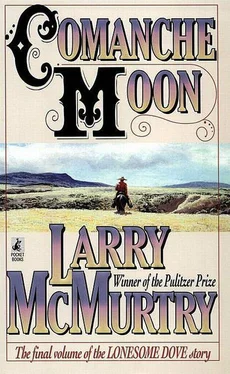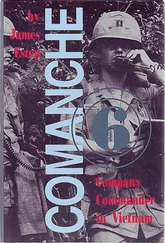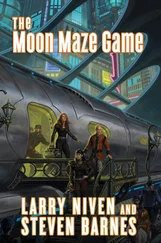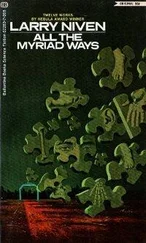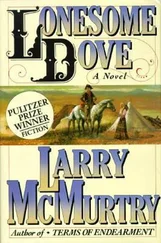"See there, men, Juan's taking Solomon home," Captain King said. "He won't chouse you no more. It's perfectly safe to come down." The black men listened respectfully, but didn't move.
"Now, this is vexing, I don't know if Lonesome Dove will ever get built, though there's a fine river crossing there to be taken advantage of," Captain King said. "Between the bull and the French witch, these men are badly spooked. I don't suppose I could persuade you to lead them back to Lonesome Dove, could I, Captain?" "Well, I guess I could take them back, if they ever decide to come down," Call said.
"But what about the cattle to ransom Captain Scull?" Captain King simply ignored the question.
"I've decided to proceed to my headquarters," he said. "I'd be obliged if you'd take these men back. They've got a saloon to build, and then a house.
Th@er@ese Wanz will not be wanting to bivouac in Napoleon's tent forever." The black men, evidently feeling that the bull was now gone, began to edge off the limb.
Call was hoping that Captain King would at least make some proposal regarding the cattle. After all, the Governor had asked, even if his letter did get a little wet. It was annoying that Captain King felt he could simply disregard it. He seemed far more interested in the carpenters than in the fate of Captain Scull.
One by one the carpenters edged down the bole of the live oak tree. They were all elderly men, each carrying a small sack of possessions--not much.
"Captain Scull is my captain," Call said. "I'm obliged to try and rescue him if I can." Captain King only looked at him the more severely.
"I'm a blunt man, Captain," he said.
"I know Scull's rank and I know your mission.
In my opinion you and those tipplers back in Lonesome Dove could no more drive a thousand head of cattle to the Sierra Perdida than you could a thousand jackrabbits. I won't give you a cow, and besides that, I'm in the midst of the branding season and can't spare my vaqueros, either. [ that not enough, I happen to know that the state of Texas is broke, and I am not the sort of man who enjoys giving away livestock." "Well, Mr. Fogg said as much," Call told him.
"Oh, Denton Fogg, that gloomy fool," Captain King said. "He'll starve out in another year or two and have to take those spavined women back east." "You won't sell us any cattle, then, Captain?" Call asked.
Captain King, whose mind seemed to be elsewhere, swung his severe gaze back to Call.
"You're a persistent man, I see, Captain," he said. "Do you like Inish Scull?" "What, sir?" Call asked, surprised by the question.
"It's a simple question, Captain," Richard King said. "Do you like Inish Scull?" Call resented the question so much that it was all he could do to keep from simply riding off with the black carpenters. He didn't like Inish Scull, as it happened: the man had been rude to him too often. But that was his business, not Captain King's.
"The Governor gave us orders," he said.
"I mean to carry them out, if I can. I'd appreciate your help, but if I can't get it I've still got my orders to carry out." "I should have asked McCrae," Captain King said. "I expect I would have got an answer from McCrae. You do like McCrae, don't you, Captain? Will you admit that much?" "I had better take these men and head back to Lonesome Dove, Captain," Call said. "I don't want to get caught in this brush after dark." "I'm glad you didn't take me up on that job offer, Captain Call," Richard King said. "I fear we'd quarrel." "We would if you asked about things that are none of your business," Call said.
Captain King's look grew dark.
"Everything that happens in Texas is my business, Captain Call," he said.
"Everything! I trust you'll remember that." Without another ^w or look he turned his horse and left, disappearing into the brush at the point where the bull and the old vaquero had been.
Call found himself no wiser in the matter of the ransom than he had been when he left Austin.
They had no cattle, and could find no one who would let them have any. Yet another mission was tending toward failure.
Besides that, he was in the midst of the south Texas brush country, with four elderly black men who did not seem happy to have been left with him. He suddenly realized that he had failed to ask Captain King whether the men were slave or free.
If they were free he had no right to insist that they go back to Lonesome Dove with him. He decided just to ask them if they would come.
"I'm ready to go, men--are you coming with me?" he asked.
All the men nodded--they clearly didn't want to be caught in the brush after dark either.
"Missus Th@er@ese gonna whip us, though," the oldest of the men said.
"Oh, does she whip you, then?" Call asked. To his surprise the four men all smiled broadly.
"She get after us with the buggy whip," one said.
"Mister Xavier too, though," another commented.
"She get after Mister Xavier worse." "Her husband, you mean," Call asked.
The old black man nodded; the others looked suddenly fearful, as if they might have said too much.
Call didn't question them further--it would only embarrass them. As he rode back down the narrow trail he recalled that Madame Scull was said to go after the Captain with a bullwhip, when in a temper. Now here was another wife who whipped her husband--it struck him as strange. Though he and Maggie were not married, he could not imagine her behaving so.
"Well, at least it's just a buggy whip," he said.
None of the black men said anything.
"Get up, Monsieur. Make the liquors. The customer is here!" Th@er@ese Wanz said, flinging each ^w at her husband as if it were a small stone. Xavier Wanz, her husband, seemed to be thinking thoughts of his own; he continued to sit at the table with the white tablecloth, staring at his glass.
Th@er@ese, in only a few moments in her tent, had managed to sweep her abundant brown hair up on her head in an appealing mound; the gown she wore did not quite conceal her plump shoulders. Augustus McCrae, who had not expected to see a woman, much less an attractive woman, for several years, if ever, found that the sight of Th@er@ese brought an immediate improvement in his mood.
She stood in the middle of the barroom floor, hands on her hips, looking at the rangers cheerfully.
"See, already the customers," she said to Xavier. "Vite! Vite! Make the liquors." Xavier Wanz compressed his lips, and then, as if propelled by a spasm of fury, jumped from his chair and strode over to the tent, beside which a sizable mound of goods was covered by a large wagon sheet.
Xavier dove under the sheet like a rat seeking cover; for a moment, only his rump was visible, but, in the space of a minute, he emerged with two bottles of whiskey and several glasses. He hurried to the bar, set the bottles and glasses on it, and paused to straighten his cuffso.
"Messieurs," he said, bowing slightly, "the pleasures are mine." "If the bar's open I expect a few of those pleasures might be ours, too," Gus said.
Pea Eye declined the liquor and Deets wasn't offered any, but in a few minutes the other rangers, including young Jake Spoon, were all seated around the table where Xavier had sat.
At Th@er@ese's strident urging Xavier had applied himself again to the mound under the wagon seat and come out with several chairs.
"These glasses are clean," Gus said, in astonishment. "You could spend a week in the saloons of Austin and never encounter a clean glass." As soon as each glass was emptied, a process that didn't take long, Xavier appeared with a bottle, poured, and bowed.
"Monsieur," he said, invariably.
Ikey Ripple, who had passed easily and quickly into a state of profound inebriation, found himself a little put off by the bowing.
"Why's he bowing to us?" Ikey asked.
Читать дальше
